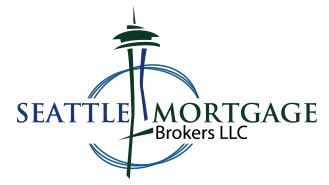We're In A Buyers Market Lower mortgage rates haven’t caused an uptick in demand just…
Banks vs. Nonbank Lenders
Its important to know the differences between banks and nonbank lenders to help you decide which way to go when taking out a home loan.
When we refer to “nonbank lenders”, we’re simply talking about financial institutions that don’t have a full banking license, that don’t take deposits, and that are not a government authorized institution as banks are. Instead of getting funding from deposits, nonbank lenders get it from banks or investors.
A lot of people are just bypassing the banks these days and are getting a home loan through a nonbank lender via a broker like Seattle Mortgage Brokers. Some sources conjecture that nonbank lenders may be actually writing more mortgages than banks and credit unions are. Together, we will explore five differences between banks and nonbank lenders to help you decide where to go to get your loan.
1. Risk Tolerance
Banks: Since the mortgage crisis of 2008, banks have kind of slowed down on giving out mortgage loans. The aftermath of the mortgage disaster for some banks included lawsuits, levied fines, and increased federal regulations. While banks still offer mortgages, they typically like approve mortgage loans to the lowest-risk borrowers.
Borrowers that banks tend to lend to now are individuals that are more affluent and take out jumbo mortgages. Banks are also getting away from offering FHA loans since the market for them consists largely of people who don’t qualify for a conventional loan.
Nonbank lenders: People with average credit scores still need home loans, and nonbank lenders are often the solution. These institutions can be nationally known and found online or can be local, even family run businesses. Nonbank lenders tend to offer FHA loans.
2. Approval Process
Banks: It takes banks, on average, longer to approve your mortgage loan than it takes nonbank lenders. Banks and nonbank lenders both need to gather documents such as tax returns, bank statements, and more. And after the approval, both banks and nonbank lenders order an appraisal and put your loan package through underwriting after you’ve signed a purchase agreement for a home. However, the pre-approval process takes longer with banks.
Nonbank lenders: Nonbanks can typically pre-approve your loan quickly, often in a matter of hours. They do this by using automated algorithms for making decisions and by your mortgage broker gathering and processing documents electronically. For example, nonbank lenders often automatically import your financial data that was collected by the broker you’re working with, which speeds the process. Its good to have your last two years of taxes available, as well as recent paystubs and bank statements.
3. Down Payment
Banks: Regarding mortgage loans, banks typically require a 20 percent down payment.
Nonbank lenders: Most FHA loans, where borrowers can put down as little as 3 or 3.5 percent down as a down payment, are mainly offered at nonbank lenders. These lenders are typically more flexible with borrowers.
4. Rates Offered
Banks: Banks typically aren’t very flexible regarding rates.
Nonbank lenders: Nonbank lenders have more flexibility regarding rates and fees. Nonbank lender can be more judicious in placing overlays for underwriting. Nonbank lenders still need to follow the guidelines but they can also be more flexible in the loan types and options they offer.
5. Generalists vs. Specialists
Banks: Banks are involved in many types of financial services: checking, savings, money market, and retirement accounts; credit cards; and auto, commercial, small business, and mortgage loans. This makes them generalists in the financial sector. Because they are generalists, they are limited as to what they can offer for residential mortgages.
Nonbank lenders: Nonbank lenders typically specialize in a product, like mortgage loans. Nonbank lenders are specialists and are, therefore, quicker, cost less to close, are more responsive, and in most cases, are more knowledgeable than your regular bank loan officer. This is why you should talk to a broker like Steve Gilbert at Seattle Mortgage Brokers, with his nearly 20 years being a mortgage industry professional.
Bottom Line
Whatever you choose to do when getting a loan, talk to a broker that has your best interests in mind. Check your credit report before applying for a loan. No matter what, you want your score to be as high as possible before you apply. Then, find out how much you qualify for and what the loan terms are, such as rates and fees.
*This article does not represent legal interpretation or advice. This is not a commitment to make a loan. Loans are subject to borrower qualifications, including income, property evaluation, sufficient equity in the home to meet LTV requirements, and final credit approval. Approvals are subject to underwriting guidelines, interest rates, and program guidelines, and are subject to change without notice based on applicant’s eligibility and market conditions. Refinancing an existing loan may result in total finance charges being higher over life of loan. Reduction in payments may reflect longer loan term. Terms of the loan may be subject to payment of points and fees by the applicant.


